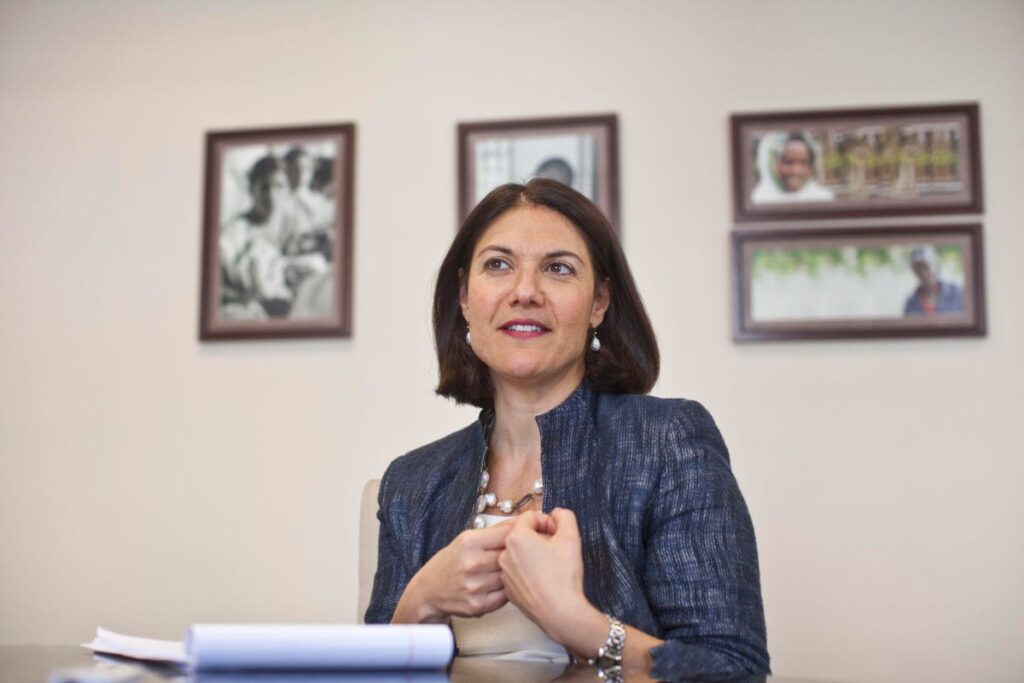The recent smoky air in New York City caused by Canadian wildfires is a stark reminder to fintech leaders of their role in addressing pressing global issues such as gender parity, financial inclusion, and climate change.
These issues are intrinsically interconnected, and fintech tools have emerged as critical catalysts for progress. All three global matters came to a head during Women’s World Banking’s Making Finance Work For Women Summit in Mumbai, India, which I attended last month.
Leaders worldwide gathered for two days to discuss how fintech can promote women’s economic power, a critical step in the fight against climate change.
Financial inclusion gives women equal access to resources and opportunities, enabling them to invest in clean technologies, lead environmentally conscious initiatives, and contribute to climate resilience.
However, there’s still a long way to go for access to economic opportunities to result in more female leaders. For example, women in director, vice president, general manager, and executive levels make up only 15% of the finance workforce and 11% of the tech workforce.
Without immediate action, gender disparity and inherently climate change will continue for at least five generations.
“Women will still be lagging behind men when your daughter’s daughter’s daughter’s daughter’s daughter is born,” said Mary Ellen Iskenderian, President and CEO of Women’s World Banking, during the summit. “I’m too impatient for that.”
Fintech’s Role In Climate Change
Climate fintech startups banked $2.9 billion in new funding in 2022. While it’s encouraging that there is a growing interest in investing in climate fintech to combat climate change, it may still take some time for these startups to establish influence.
A more immediate solution is to engage in environmental, social, and governance investing, which allows individuals and institutions to make informed decisions about their investments. Fintech tools have advanced ESG investing and facilitated the creation of gender-focused investment funds and ETFs that directly invest in companies with a solid commitment to gender equality.
Investors can use fintech platforms like Physis Investment to assess potential investments based on their ESG performance and prioritization of gender equality and climate action. Additionally, other fintech-fueled ESG platforms offer a variety of tools and resources, such as robo-advisors like Betterment, for socially responsible investing or Women’s World Banking’s Capital Partners Fund evaluates companies’ commitment to gender diversity, pay equity, and female leadership representation, also known as gender-lens investing.
Although the fintech industry has advocated for ESG investing and its benefits, it is not a perfect solution.
Progress In Gender Parity And Climate Change
ESG investing may also lead policymakers to believe that the market alone can solve major societal issues like climate change when government intervention is necessary to prevent more climate catastrophes.
On top of that, ESG can sacrifice returns, according to Christina Juhasz, Managing Partner and Chief Investment Officer, Emerging Market Funds, Women’s World Banking Asset Management.
“If you cannot invest in fossil fuels or if you’re investing in climate mitigation, you may not have a return on the bottom line,” she said. “However, gender-lens investing doesn’t have that same issue because diversity correlates to growth.”
According to Juhasz, the three definitions of investment in GLI are women-founded or lead companies, companies that offer products and services that are beneficial to women, and companies that have an inclusive workplace practice for women.
Aureolis Ventures, an early-stage investment firm, actively participates in GLI. However, the company knows it’s about more than choosing female founders, says Founding Partner Paula Mariwala.
“It’s also about looking at the volume of business consistently and how the team with the skills and expertise, including diverse perspectives, will fit with the model we are investing in,” she said.
Government Policy
To understand how these strategies translate into government, look at Germany for an example.
Michael Brill, Senior Portfolio Manager at KfW Development Bank, says gender equality is fundamental to Germany’s foreign policy. This policy addresses United Nations initiatives related to climate change and biodiversity preservation, critical components of foreign development policy. KfW Development Bank has been committed to improve global economic, social, and environmental conditions on behalf of the Federal Republic of Germany and its federal states since 1948.
“Gender lens investing is working for us as a tool with the overarching goal to reduce inequity,” he said. “It should not be about excluding men or any other participants in the market, but rather to reduce that inequality, which is still there, and which we believe and our government believes, is the real obstacle through meaningful and sustainable financial investments in emerging and developing markets, but also in our regions.”
In terms of numbers, up to 85% of KfW Development Bank’s investments have gender equality as a significant objective, with 8% of the portfolio dedicated to gender equality as a core objective.
“Once you have women at the table making policy in these leadership positions in various government agencies, you can put forth policies with feminist agenda that align with gender lens investing,” Brill said.
In order to have enough clean air to breathe, the fintech industry needs to be committed to all the defenses, tools, startups, and strategies to reverse climate change in the small window left.
Investing in women is how to get there, fast enough.
Read the full article here













